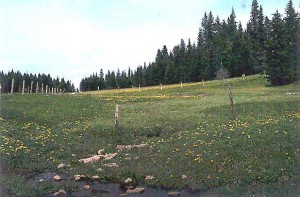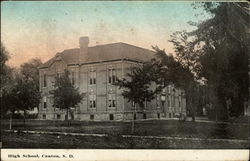Inspector James McLaughlin’s report (see 9/30/10 post) is especially interesting when one compares the emphasis on the Canton Asylum for Insane Indians’ facilities, with the comfort of its patients. Besides the substantial buildings he noted, McLaughlin also mentioned that the asylum had 100 acres of land.
This acreage had been purchased for $30.00/acre and in 1910 was worth about $100/acre. About half of it was used to grow grain for the asylum’s cattle, as well as vegetables for the patients. The rest of the land was meadow and pasture, which allowed grazing in the summer and forage in the winter, for cattle and horses.
The building had been designed for 48 patients, and held 61 at the time of McLaughlin’s visit (September, 1910). There was no hospital, and only three rooms where patients with a communicable disease could be isolated. The septic system didn’t work, and drained raw sewage onto the grounds. McLaughlin said that the problem needed to be addressed immediately…not for the health of the patients, but to avoid trouble with the county commissioners.
________________________________________________________


